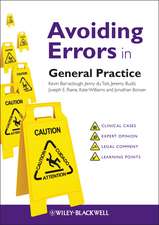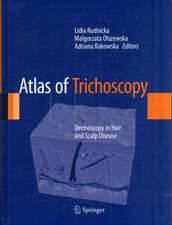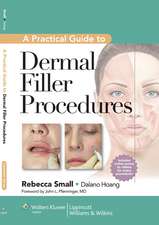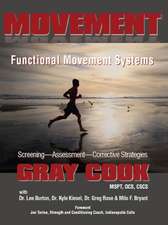Proper Doctoring
Autor D. Mendelen Limba Engleză Paperback – oct 1984
Preț: 360.34 lei
Preț vechi: 379.30 lei
-5% Nou
Puncte Express: 541
Preț estimativ în valută:
68.97€ • 74.95$ • 57.97£
68.97€ • 74.95$ • 57.97£
Carte tipărită la comandă
Livrare economică 21 aprilie-05 mai
Preluare comenzi: 021 569.72.76
Specificații
ISBN-13: 9783540136866
ISBN-10: 354013686X
Pagini: 196
Ilustrații: XIV, 178 p.
Dimensiuni: 133 x 203 x 10 mm
Greutate: 0.21 kg
Ediția:1st Edition.
Editura: SPRINGER LONDON
Colecția Springer
Locul publicării:London, United Kingdom
ISBN-10: 354013686X
Pagini: 196
Ilustrații: XIV, 178 p.
Dimensiuni: 133 x 203 x 10 mm
Greutate: 0.21 kg
Ediția:1st Edition.
Editura: SPRINGER LONDON
Colecția Springer
Locul publicării:London, United Kingdom
Public țintă
ResearchCuprins
1 The Job Description.- The Importance of Common-sense.- Polishing your Performance.- Craftsmanship.- Patient Handling, or Why Medicine Is Not Mechanics.- The Doctor—Patient Relationship from the Doctor’s End.- Doctors and the Media.- Too Clever by Half.- The Need for Role-Playing in Medicine.- Rehearsing your Role.- Type-cast by Nature.- Playing your Role.- Looking the Part.- Confidentiality.- 2 Taking the History.- Before Calling the Patient In.- The Patient’s Stance.- The Doctor’s Stance.- Meeting the Patient.- Taking the History: Why and How.- The Patient’s Story.- How To Ask Questions.- Getting the Answers.- How Am I Doing?.- Diagnosis.- ‘Difficult’ Patients.- Children.- Third Parties.- Confidentiality.- Writing Up the History.- Past History, Family History and Social History.- 3 Examination of the Patient.- Preparing for the Examination: Putting the Patient at Ease.- The Doctor’s Stance During the Examination.- Getting the Hang of Physical Signs.- The Actual Examination.- Evaluating the Physical Signs.- 4 In the Ward.- The Effect of Ward Life on the PatientTalking to Patients.- Decision-Making at the Bedside.- The Megaround.- Dodging the Column.- Changing the Medication.- Discharge from Hospital.- Ward Notes.- 5 Investigation.- Factors Influencing the Ordering of Tests.- Is the Test Worth While?.- Telling the Patient About Tests.- The Actual Investigation.- When Things Go Wrong.- The Patient Who Refuses To Have a Test Done.- The Interpretation of Tests.- Telling the Patient About the Results of the Tests.- Filing of Results.- 6 On the Art of Diagnosis.- The Logical Basis of Diagnosis.- Pattern Recognition.- The Physiological Approach; Goodness of Fit: The Basis of Pattern Recognition.- The Importance of ‘Mechanisms’.- Attitude to Information;Incommensurable Values.- Making the Diagnosis.- 7 Advice and Explanation.- Deciding What Advice To Give.- The Consultation.- Building Up the Doctor—Patient Relationship.- How Much To Tell the Patient; Explanation.- Reassurance; Helping the Patient to Adjust to the Facts.- If the Patient Rejects your Advice.- Drugs.- Fatal Diseases and Death.- 8 Attitude to Colleagues.- Hearsay Second Opinions.- Colleagues as Patients.- Relations with Non medical Colleagues.- Envoi.- The Response to Change.- Unchanging Aspects.








